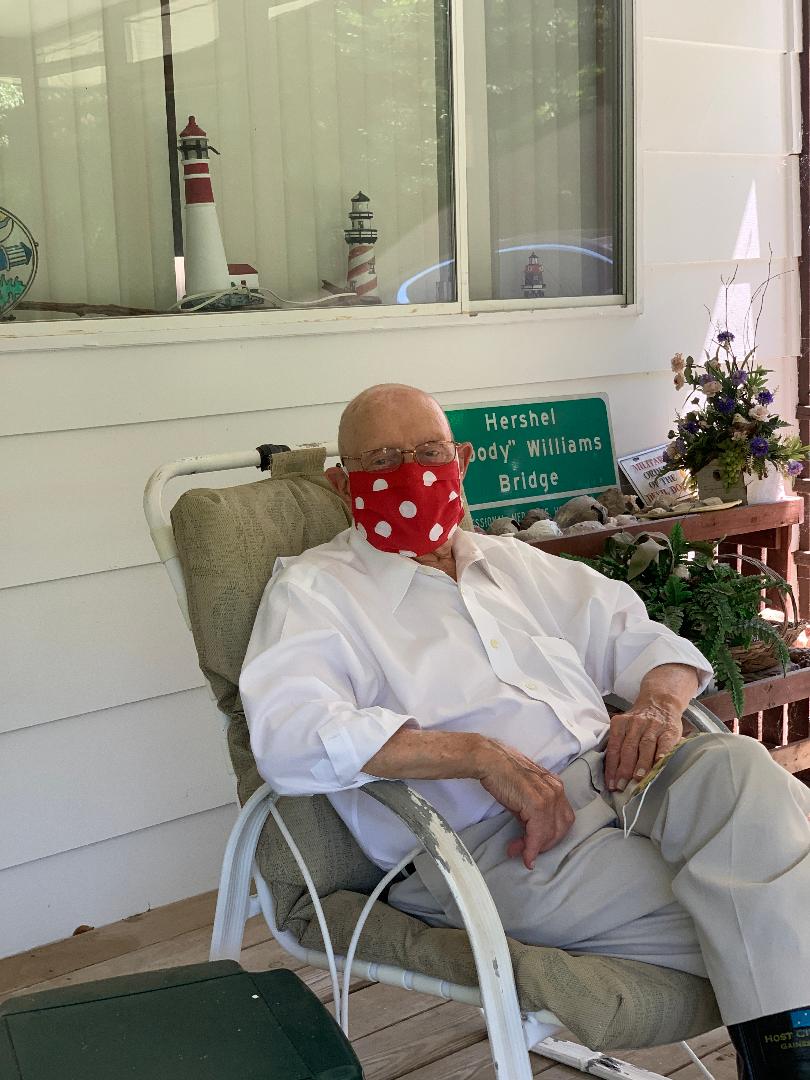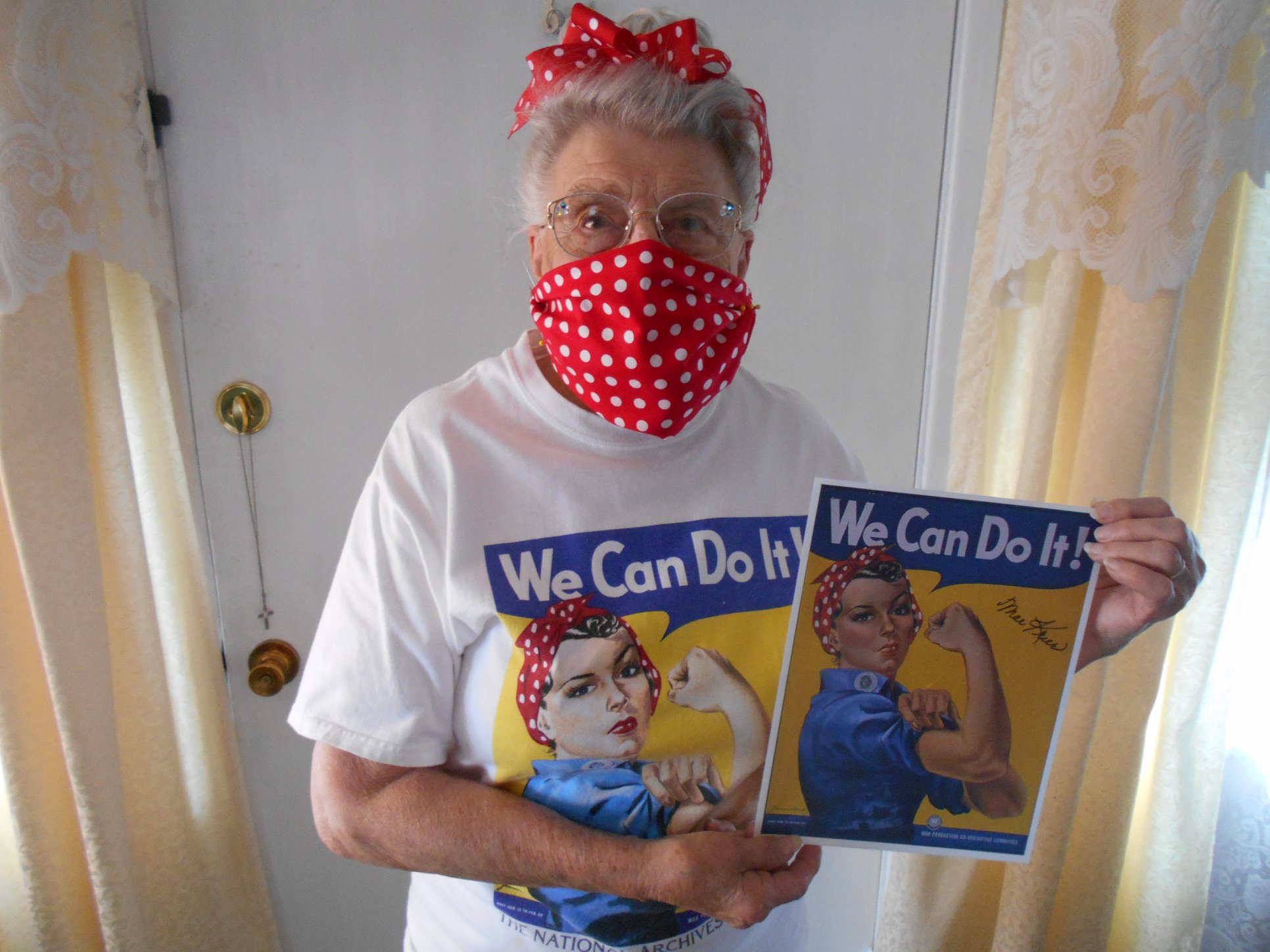In 1943 at the age of 17 Mae Krier, alongside her friend and sister, traveled to Seattle from their hometown in North Dakota to begin work for Boeing.
The summer job started as a lark, “but the way it turned out, we loved it and we stayed through the war,” Krier told DOD News. By war’s end, Krier and 6,000 other women had helped to build over 6,000 B-17 and B-19 aircraft at the Boeing plant.
Today, at the age of 94, Krier is once again serving her country.
From her home in Levittown, Pennsylvania, Krier, one of the original “Rosie the Riveters”—first depicted in 1943 by J. Howard Miller in a WWII-era poster—has started making Rosie face masks to help stem the effects of coronavirus.
“It kept me from getting bored…I’ve got to be careful. My only exercise I’m getting is my trip to the refrigerator,” she quipped to the Ellwood City Ledger.
So far Krier has distributed more than 200 of the distinctive red polka-dotted “Rosie” masks around the country. “Someone put it on Facebook and it’s sky-rocketed,” she told the Ledger. “People are wonderful.”
Krier hopes her efforts not only help stop the spread of coronavirus, but that it also brings attention to her crusade to have the “Rosies” honored with the Congressional Gold Medal—one of the highest civilian honors awarded by Congress.
“Up until 1941, it was a man’s world,” Krier told DOD News. “They didn’t realize how capable American women were. We’d never had a chance to prove it. Hitler had said that he wouldn’t have any trouble defeating us because he said American women couldn’t produce. He said we spent too much time on cosmetics and silk stockings and frivolous things.”
“I think we showed Hitler what American women were made of,” Krier said.
The bill, first introduced in March 2019 by Rep. Jackie Speier, D-CA, received little backing. A second, slightly altered bill, Senate Bill 892, introduced by Sen. Robert Casey, D-PA, needed more than 60 co-sponsors—Krier had 29. However, after the 75th anniversary of D-Day, Krier’s efforts were noticed by House Speaker Nancy Pelosi. The bill has since been approved by the House and is awaiting Senate consideration in November, according to Congress.gov.
Trading rivets for needlework, Krier’s handiwork can be seen worn by Medal of Honor recipient Hershel “Woody” Williams, as well as Pennsylvania State Rep. Melissa Shusterman, among others.

“People say to me, ‘You helped win WWII and now you are helping our country win this battle over this virus. These are nice things to hear,’ ” Krier told the Ledger. And with the number of “Rosies” dwindling, Krier hopes to keep the Rosie legacy alive, “It’s important that we go down in history.”
As for masks? “I think this is pretty simple,” Krier wrote on the Honor Rosie Facebook page. “It is a whole lot easier to wear a mask than to put rivets in a plane or weld on a battleship, which we did.”

